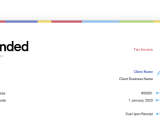
Why you should insure yourself, not just your equipment
It's common practice for sole traders to keep delaying decisions concerning life and income protection insurance. It's neither pleasant nor productive to have to think about getting robbed or seriously injured, amongst a pile of looming deadlines.
Article contents
− +
Thinking about taking out life and income protection insurance?
Earlier this year we looked at the question of public liability, professional indemnity, and property insurance - but what about insuring your life and income?
Life cover
If you have dependents (possibly a spouse or de facto, even if they have their own income) you may want to take out life insurance. Arranging this through your super fund can be attractive. It may provide access to group rates which can mean lower premiums than you would pay as an individual.
Furthermore, since the premiums are deducted from the balance of your account, there can be a tax advantage. With a taxable income of $45,000, you need to earn nearly $150 to pay a $100 premium with after-tax dollars. But a tax-deductible superannuation contribution of $118 puts a net $100 into your account, which is enough to cover the same premium. Depending on how much cover you need and the level of premiums, that saving can add up to a handy sum over the course of a year.
If you have already decided how much you should be contributing to your super and then decide to arrange insurance through the fund, that will reduce the amount you are saving for retirement. So consider boosting your contributions to cover the premiums.
Don't just assume that the life cover available through your fund is the right choice for you - it might be, but you won't know for sure if you don't look at what else is available.

Income protection
Income protection provides you with some income when you can't work due to sickness or injury.
The premiums are tax deductible, but any payments you receive are taxable.
While income protection insurance can often be arranged through super funds, possibly with the advantage of lower group rates, you can't double-dip - if the premiums come out of your super contributions, you can't claim a separate tax deduction for them.
Again, it's very important to make sure the cover and conditions are right for you.
In particular, freelancers' incomes tend to fluctuate more than those of salaried staff. So if you made $80,000 last year, a policy might provide maximum payments equivalent to $60,000 a year (the norm is 75% of income), but the actual amount will be calculated on your then-current income. For example, if you're only on track to make $60,000, the payments may be pro-rated to that lower amount. This is known as an indemnity policy.
On the other hand, agreed value policies pay out a specified amount when you are unable to work. This might be preferable, especially if your income has fallen.
Not surprisingly, indemnity policies are cheaper than their agreed value equivalents.
Watch out for policies that only allow you to maintain or increase the cover at renewal time. As much as we all like to think things are going to be better next year, that's not always how it works out. When times are tough, you don't want to spend more than necessary, and you'll have better things to do than hunting around for a better deal on income protection insurance.
Don’t over-contemplate
The trouble with insurance is that it is associated with unpleasant events, such as being robbed or seriously injured. Yes, even dying. So it’s very common for sole traders to keep putting off making such decisions.
But give the matter some thought. Do you need life insurance? Do you need income protection insurance? The answers are not always obvious and can be influenced by many factors, but if in your situation either answer is “yes” then you should act before it's too late.
Good places to start comparing life and income protection insurance products include Canstar for product ratings and CompareTheMarket, Finder.com.au and iSelect for comparing quotes from a range of companies. Do keep in mind that no one site will present you with all the available options.
Tax, insurance and superannuation are relatively complex matters, and this isn't financial advice. Before taking any decisions, make your own enquiries and seek professional advice as you see fit.
Contents
Join newsletter
ABOUT ROUNDED
Invoicing and accounting software for sole traders. Get paid faster and relax at tax time.
























